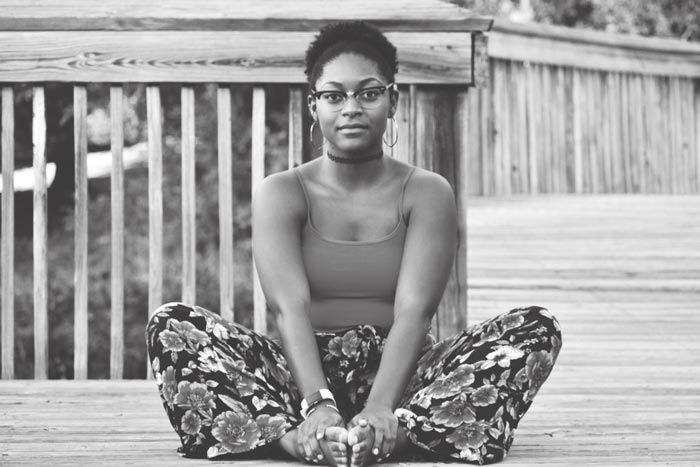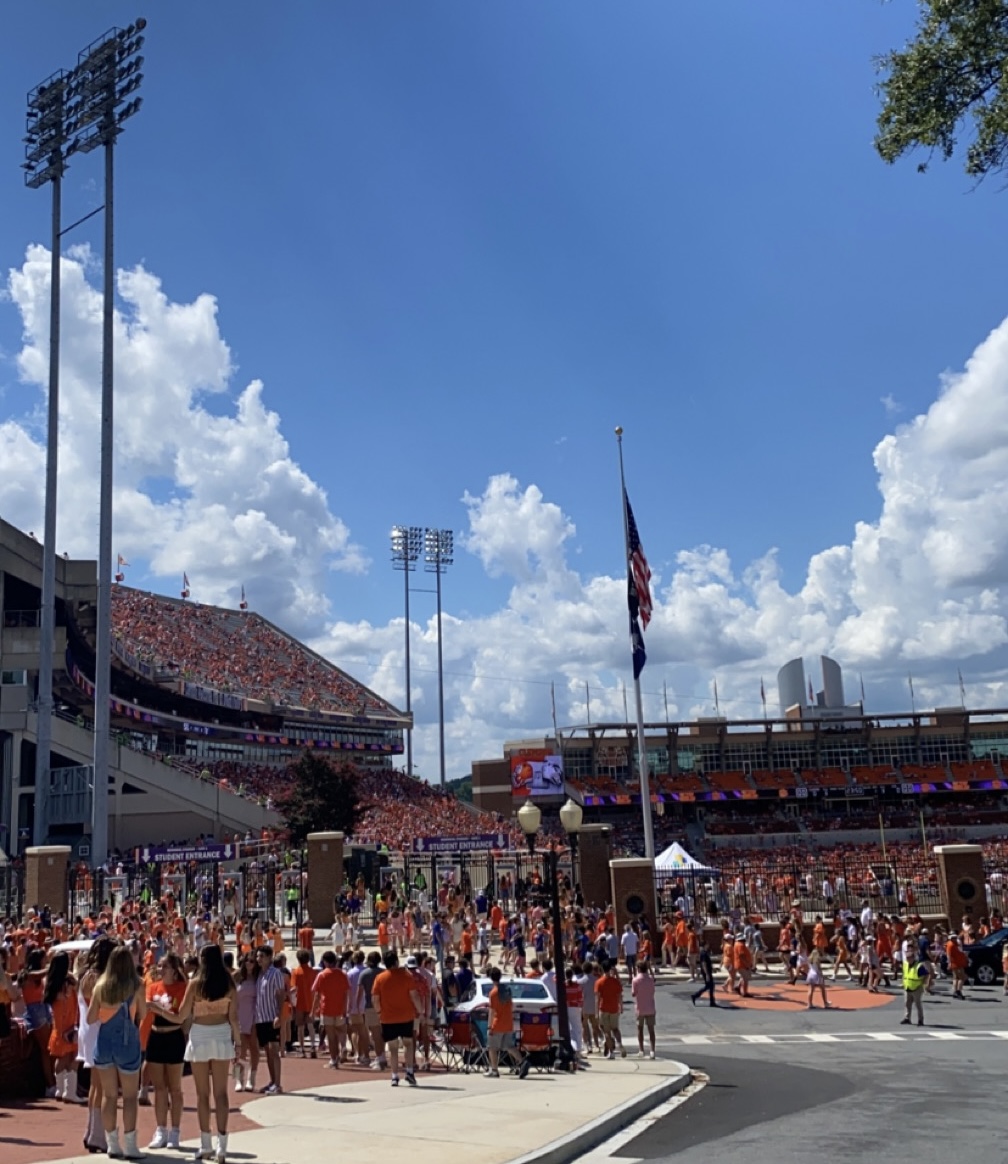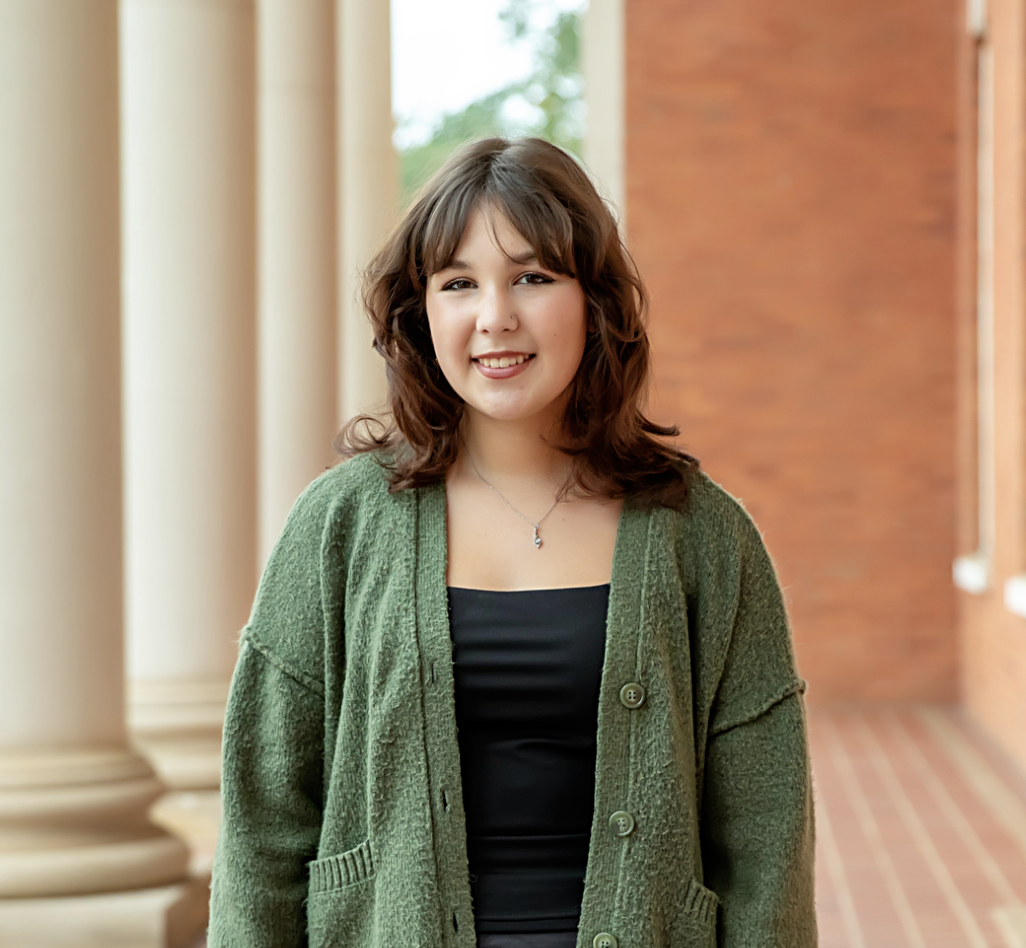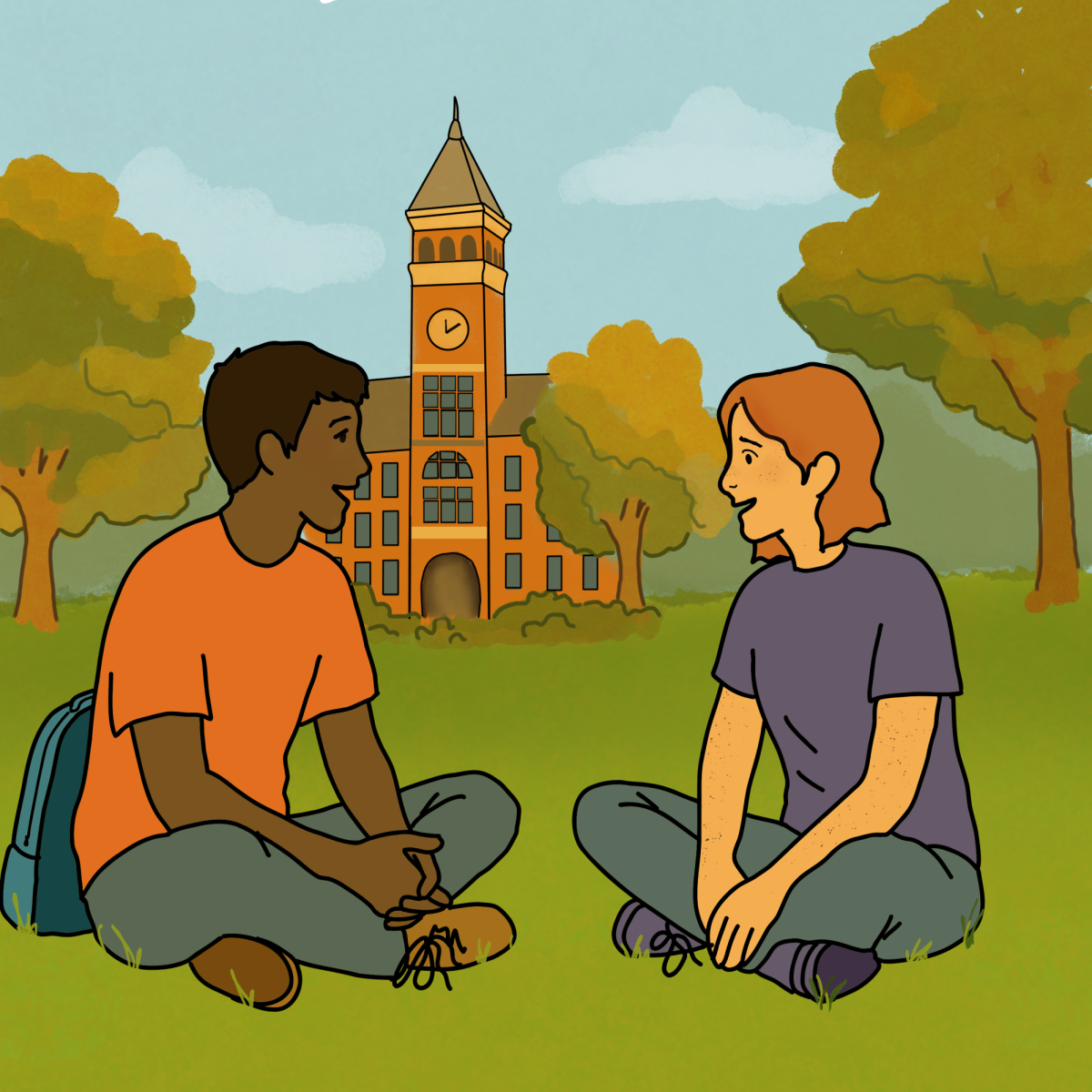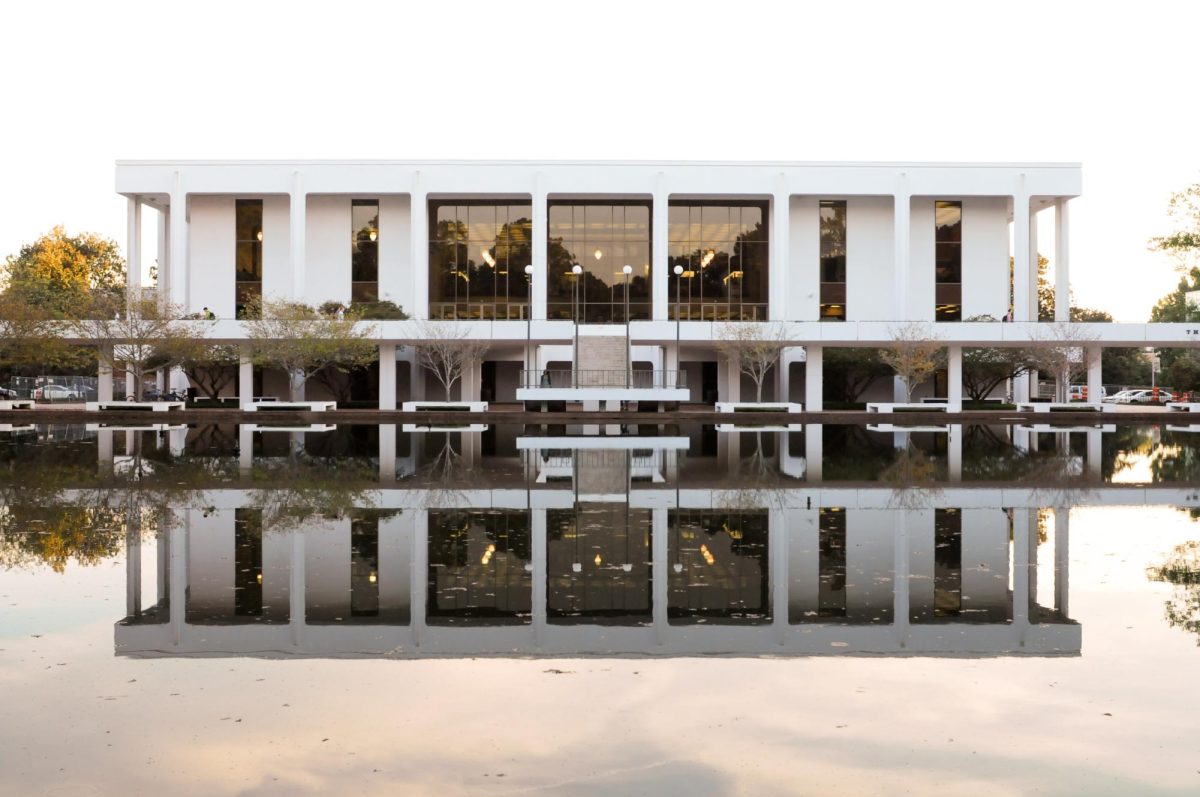*Warning: this article discusses sexual assault and may be triggering.
“But still, like dust, I rise” – contributed by Remy
Remy, 22, shared her story about being sexually assaulted at 14, and how she moved forward and gained the strength to empower herself and others.
Q: Tell me how violence against women has affected you.
R: When I was 14, in middle school, I had a history teacher who raped me, sexually assaulted me, over the course of several months. From the time I was in middle school until the school year ended.
Q: Tell me how that happening to, especially so young, has affected your relationships with people that you already knew and people that you met following the event.
R: Yeah, it had a big, big impact. I would say because prior to that I was very religious –– deeply religious –– and I didn’t think that I was going to have sex until I got married, at all. So after that, when I went to high school, I didn’t want that to be my memory or my perception of sex. And that was all that I had.
And so, me being this like maybe overly logical, I said, “I’ll go have sex with someone else,” because then I’ll have that memory, and once you form a new memory the old ones fade more easily.
So that was a big difference because I think that my relationships with men and the various relationships that I’ve been in have very much formed my relationship with the world around me. Which could be a downfall, but it’s who I am now. That’s not who I was before.
Q: Tell me about your decision to share your experience with your parents or whoever you shared it with first.
R: I actually didn’t share it. I was really afraid it was actually still going on and what happened was that my stepsister found out.
They noticed that I was really withdrawn. I was different. I gained a lot of weight, it’s the heaviest I’ve ever been in my life. And so she went through my phone records and she called this phone number that she saw frequently and asked him questions, and she asked him how old he was and then she picked me up from school, and she was like “we have to tell your dad.”
She told my stepmom, and I had to tell my dad. So, I told my dad when I got home from school that day and he flipped out at me, which was not good. But he also flipped out at the situation. He was just angry. He called the police, and it went from there.
Q: How did you feel being not having control of how and when people found out.
R: Nauseating. It’s still nauseating.
Q: Did your parents give you any kind of any kind of power over the decision of whether or not to seek legal action.
R: No. ButI guess it’s hard because that story often precedes me.
Q: What can you tell me about how the case was handled? Did you feel like the people dealing with your case were receptive to what you had to say?
R: Absolutely. The prosecutor was incredible, she really listened to what happened. I went to the victim’s advocate that night, and I had to tell everything that happened. He was incredible … The defense attorney, obviously, it was a bad situation, but he was doing his job. The judge was unbiased, I’ll say that. He wasn’t kind, but he was unbiased.
Q: Being as far out of this situation as you are looking back are you happy that you and your family pursued legal action?
R: Absolutely. Absolutely. He has a daughter, which more than anything was the thing that made me not want to stop my parents or tell them not to do it because it happened to me, but I don’t want him to do it to anybody else.
Q: Did you ever along the way blame yourself?
R: Absolutely. I still do.
Q: Why do you think it is such a common thing for survivors to do?
R: I think that it’s so common because survivors tend to think that it was about sex, and sex is mutual. But it’s about power. I think that it took a long time for me to separate that experience from thinking of it as a sexual experience that I had, because it wasn’t. It was an attack that happened to take that form, and I’m not responsible for that.
Q: Did you make a decision at any point to seek counseling for the event?
R: Yeah, I went to counseling from the week after it happened until my sophomore year of college – so six years. And it helped –– it helps me help myself.
Q: Tell me more about your decision to take this step to seek counseling.
R: Actually, my dad set up like appointments with different therapists … [so I could] figure out which one I liked … And then I met therapist who I saw until tenth grade regularly, until I graduated, sparingly. And then at Clemson I actually went to CAPS for a while.
Q: Would you say that you had a positive experience with CAPS?
R: I did the first time I went. I had a therapist that we really meshed well. The hard thing with CAPS is scheduling. I tried to go back and see the same person, but the scheduling didn’t work out. And I think that therapy has a lot to do with your comfort with a person.
Q: What advice would you give to other women who are considering seeking counseling?
R: I would tell them that it doesn’t make them weak. It doesn’t make them “needy” and that counseling is just as much a part of self-care as getting a manicure. To me it’s more important because if your mental health isn’t in check, then what is?
Q: Tell me about the effects of your decisions to seek counseling.
R: It’s helped me mostly with how I talk to myself or how I perceive specifically this event. Because it’s shaped my thoughts about almost everything. So that was good, because it’s nice to get an outside perspective of like, “hey, maybe these things I’m thinking aren’t exactly right.”
It’s scary to tell it to a friend or a family member because that could have consequences or effects, but this person goes home at the end of the day, and like you’re probably not going run into them in the grocery store –– which makes it more comfortable for me.
Q: Can you identify ways that you move about in your everyday life that you may do differently because of what you experienced.
R: I don’t pray. I that’s the biggest thing. I think that was the biggest change for me was my belief in God.
Q: Tell me about your process moving forward. What did that look like for you?
R: It was really rough. It was definitely not a straight, up-hill slow. It was slow, and I definitely had a lot of trouble. I attempted suicide twice in high school. So, it took a little bit. And I don’t know that I can answer that question completely, because I think that it’s still sort of in play, but it’s going up. It’s just kind of zigzagging, I guess.
Q: In terms of your process of moving forward, what advice would you give to other survivors who are working on moving forward? What would you warn them about the process – the setbacks and the positive things?
R: I would tell them that it gets a lot better –– it gets a lot better.
And even though some days it might feel like you just can’t do it, or that’s all you can think about that, or that it’s controlling everything that you do. And when you go in public that’s all you could think about. And you know you smell certain things or hear certain songs, and you shut down.
But it gets so much better. Because as time goes on, especially as you distance yourself from the situation and you grow and you have so many more experiences.
To me, now it’s a part of who I am. It’s something that happened to me … it’s not who I am.
Q: How do you define rape culture.
R: I would define a rape culture as this culture that assumes consent always, and also lays blame on the survivor, frequently questions the validity of rape accusations because the incidence of false reporting is so slim – like so so so slim.
And I think that it kind of gets worse as women get older. It seems that because it seems like women participate in it too. It’s not it’s not a male driven thing at all, it’s this culture that condemns women for being “sluts”, for you know embracing their sexuality, and then what is than being raped is a justice.
You can’t assume consent. I don’t care if someone is naked and like running down the street with nipple hassles and taking shots. You can’t assume consent.
Q: Do you feel that our society has normalized rape or is desensitized to it?
R: Absolutely desensitized. And I think that our society is so desensitized to it because it’s so rampant. It’s so common. And the issue is nobody talks about it.
And I’m sure in school they don’t teach you about consent. They don’t talk to boys and girls about like, “hey, if someone says; ‘no,’ and even if you think that they might be kidding, you should double check. Or you should ask.
You should get a clear yes, and that should be required to ‘pass go.’” So, the fact that that’s not taught, and you grow up and so people form their own ideals about sex, and then about rape, and then about a blurred line between the two, which is about power.
Q: What else do you think is at play in society that makes sexual assault such a prevalent issue?
R: I think that more than anything it’s a power issue. My question is, how do you fix that?
I don’t know what it is that’s at play that makes some people do it … I think that that’s an issue. I think that more than porn, porn is a non-issue. That’s not what it’s about, it’s not. But looking at things and normalizing brutality and attacks. And normalizing it in a way that attempts to sexualize it.
Q: What would you want to tell someone who experiences a situation similar to yours?
R: It would be hard because I would tell them that I don’t know what they experienced. I know what I experienced. I know what I’ve gone through, and from that I can tell them that from that that will get better. It will get a lot better. I don’t know the things that would trigger someone else.
I can’t tell someone you know what necessarily to do or to avoid, but I would say – especially in the beginning – be honest with people.
You don’t have to tell someone that it triggers you necessarily. But if there’s a song or a smell or a place that you can handle just tell someone, “You know, I don’t really like the place,” or “I really don’t want to do that.”
Because that I found I really had to do, because in the beginning for me there were so many things that were triggering.
So, try to separate yourself from that stuff where you can, and to love you because you’re worth it, and they get so much better.
Q: If you could tell 14-year-old Remy something, being where you are now, what would you tell her?
R: It wasn’t your fault.
Q: If you were to ever have a daughter in the future is there anything that you would want to tell her or teach her based off of your experience?
R: Yeah, absolutely. I would teach her the importance of consent and also the importance of knowing that she could always come to me. I hope that as a parent that would never happen to my child. I can’t imagine that. But I really want her to know I would want her to know that I was there.
Q: If you were to ever have a son in the future is there anything that you would want to tell or teach him based off of your experience?
R: Same for him. The importance of consent. I want I want my children to know that they have a right to say no. And when someone crosses that, when someone takes something from you that you’re not giving, that it’s not OK, and that it’s an attack, and it’s not their fault.
Q: Tell me about how this experience has made you a stronger woman.
R: I don’t know how to say this. I’m just going to be candid. It’s kind of made me not give a sh** what anyone thinks … Prior to that, I didn’t that sort of have that attitude about things.
It also made me more aware of the slippery slope of rape culture. And I guess in a way it pushed me to embrace my sexuality. Because from that point on that was when my sexual “journey” began.
Q: Tell me why you think it’s important for women to embrace their sexuality.
R: I think that we kind of live in a time where moms and dads teach their sons like, “Oh it’s fine for you to lay a lot of girls and have good sex.”
But, women it’s like I can’t be smart and powerful and fit and have bomb sex I think that it’s important that women are just as satisfied in all facets of life.
They don’t deserve less. Absolutely. So, you have to find what works for you – your nail polish, your sex life, or your clothes, whatever.
Q: Tell me how you believe you can use your experience to make a difference moving forward.
R: Oddly enough, my experience pushed me to go to law school. I wanted to go to law school before. I thought about it before, but after that it was just kind of an “absolutely”.
Because I had an experience with a defense attorney that was awful to me as a 14-year -old child. So for a while I thought I wanted to be a defense attorney, so I can a good one –– so I wasn’t like him you know. I don’t think that’s that kind of law I want to do anymore, but I think that it pushed me to take leaps that I might not have taken before, that I might not have thought that I could do that.
My mom always says to me, “Retaliate by being great.”
Q: If there’s one thing that women reading this can take away from your story, what would you hope it would be?
R: If you are a survivor of sexual assault that I’m with you, and I hope that you are doing all the things that you need in your life to nourish yourself all around.
And if you’re not a survivor of sexual assault, I think it’s important that other women realize the impact that it has on someone’s life and are sensitive to that topic.
And I also, please, I want women to stop calling other women just for being sexually active “sluts” and “whores”. Because it doesn’t help. It’s not good for women to reduce other women for their choices about their own autonomy in their bodies or even out for the experiences that they might have had that wasn’t their choice, that other women don’t know the story about. So don’t assume.
Q: What do you hope the women in your life learn from you whether or not they’ve experienced any situation similar to yours? What kind of impact do you have you have on the women in your life?
R: That’s a hard question. That’s a really hard question. I also don’t normally think of myself as impacting people. I guess that they can do anything. Yeah, I want all the women in my life to know that they can do anything.


